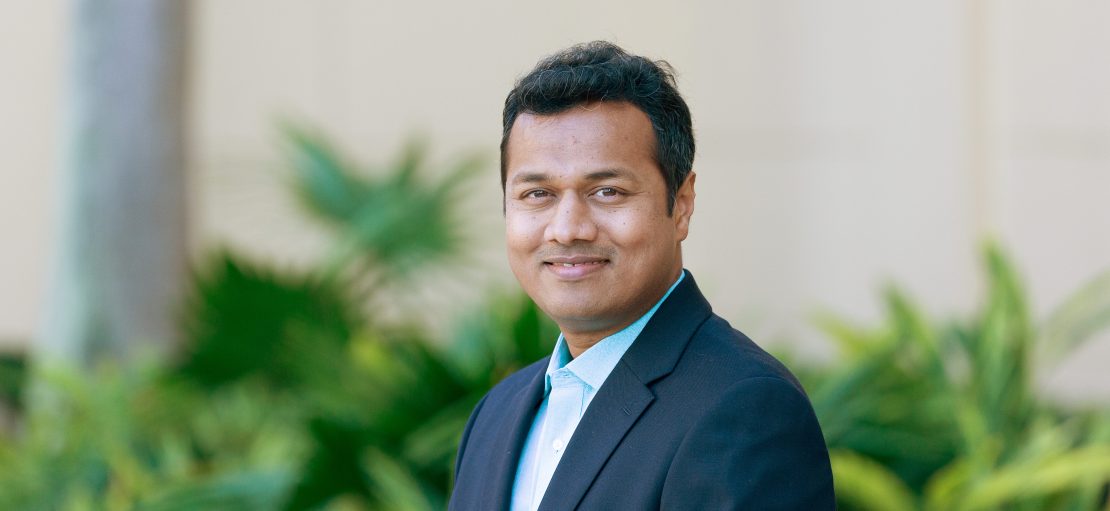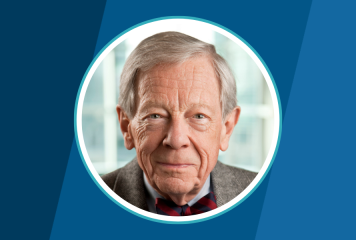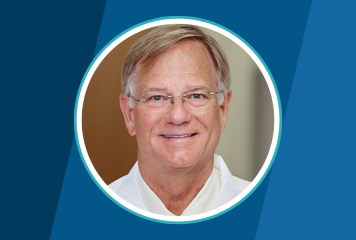Sharing Common Ground: A Hospitalist’s Journey
February 13, 2020 | Posted by ABIM | ABIM Governance, Celebrating Physicians
Nagendra Gupta, MD is a new member of ABIM’s Internal Medicine Board. Dr. Gupta is board certified in Internal Medicine and is a full time practicing hospitalist with Apogee Physicians. He currently runs the Hospitalist Program at Texas Health Arlington Memorial Hospital in Arlington, Texas.
On an average day, Dr. Gupta and his team of 22 physicians see between 150 and 170 patients. That’s one of the reasons he says he was drawn to the focused practice of hospital medicine — the unpredictability and the wide range of patients and conditions he gets to see. Aligning the patient’s needs with the right physician’s capabilities, says Dr. Gupta, is a unique challenge and opportunity to expand his knowledge base.
Originally from India, Dr. Gupta earned his Medical Degree from Osmania Medical College there and came to the U.S. in 2010 for his residency, which he completed in Internal Medicine at Texas Tech University in Odessa in 2013. While he initially faced cultural differences and challenges, he found that strengthening his communications skills helped him relate well to patients and colleagues.
Following his full days at the hospital, Dr. Gupta enjoys spending time with his wife Deepthi and daughter Riddhi. His family shares a passion for travel and is always looking for new destinations.
The following is an edited version of our interview with Dr. Gupta:
Why did you want to become a physician?
I guess it was the respect for the profession among people in general that sowed the first seeds in my mind about wanting to be a doctor. I do have physicians in my family, but that didn’t necessarily steer me into this direction by itself. I gradually came to understand the amount of impact I could make on a person’s life by nurturing them back to good health, and the more this feeling dawned on me, the more I became passionate about it. As I transitioned from middle school to high school, it became clear to me that I wanted to be a physician.
What was the best advice someone gave you about being a doctor?
Good communication skills and empathy are just as important to the practice of medicine as good clinical skills.
Communication in the setting of health care is not the same as talking to people in general, because patients are usually in their most vulnerable states when they seek help from physicians. The ability to empathize with our patients during this time plays a vital role in the patient experience and goes a long way to strengthen the physician-patient relationship.
What do you consider to be a proud moment in your career?
The day I was thanked by a family member for allowing her dad to pass away with dignity.
My patient was an elderly man who was terminally ill with advanced metastatic cancer, and there was nothing we could do to improve the quality of his life. Since everything had happened very fast, the family was having a difficult time making end-of-life decisions for him. After a few conversations and family meetings, the patient was moved to hospice where he passed away in peace. The family was very thankful to me for helping guide them in the right direction.
It was the day I realized that, as physicians, our job is not just to treat or to fix the problem. It is also our job to know when not to treat. Sometimes doing less is just as important as doing more. Families are not always able to cope with the burden of making important decisions, especially when it comes to their loved ones. I believe it is our duty to help them navigate through these difficult circumstances.
Why did you want to serve on ABIM’s governance?
Because ABIM’s mission aligns with both the advancement of the Internal Medicine community as well as the public interest, this is something that strongly aligns with my personal core values.
As physicians, we have a responsibility towards the public and towards our profession that we adhere to the highest standards when it comes to the practice of medicine. Serving on the ABIM governance gives me that opportunity to participate in this process of standard setting.
What did you learn about ABIM after joining its governance?
I learned about the tremendous amount of effort that goes into creating the test questions and developing the exam. This is a rigorous multi-step process, which includes the combined efforts of expert psychometricians, practicing physicians as well as the members of the Exam Committee. Every question undergoes multiple rounds of analysis and review before appearing in an exam. This is necessary so that these questions measure appropriate skills and are comparable in content as well as level of difficulty.
I was impressed when I learned the details about the science behind the assessment.
After joining, I met ABIM President and CEO Richard Baron, MD and many of the staff at the ABIM office in Philadelphia. Very quickly, I realized that we all share a common ground in working together to meet the goals of the physicians, the patients and the community. It was not only very refreshing to see their energy and passion, but was also very motivating to see their commitment towards ABIM’s mission.
Why would you encourage someone to join ABIM’s governance?
You don’t just get to witness the change; you actually bring about the change. I felt very fortunate to be a part of ABIM governance and consider it a privilege to be a part of the IM Board. Most of the front-line work happens at the specialty boards, especially pertaining to matters such as certification and MOC. These are very important issues for physicians, and by serving on the governance, you actually have a voice and get to take part in making a change.
How would you describe the current state of being a physician?
The intensity and demands of work easily takes a toll on the health and well-being of most physicians. Many of us have to work shifts that are round the clock and throughout the year, and this involves making personal sacrifices including lost weekends and lost moments with family. It’s no wonder the burnout rates among doctors are so high.
What interests do you have outside of medicine?
I have recently started running, and I am on track to get into my first race this year. I have never really been an “outdoor” person, and throughout my life, I have stayed far away from anything that involved any kind of athletic activity! I have finally realized the value of being active, and I feel great about it. It is definitely important from a health and fitness standpoint, but most importantly, a fit body is a reflection of hard work, discipline and self-respect.
Is there something your colleagues may not know about you?
I did go through my share of struggles at each stage of my life. I do consider myself to be reasonably successful for my age, but each success is the result of a lot of hard work and many sacrifices that I had to make. My advice to anyone reading this is to never hesitate to step out of your comfort zone. Success always lies outside the comfort zone. Always be kind. Everyone we know is fighting a battle we do not know anything about. A little bit of kindness can go a long way.



